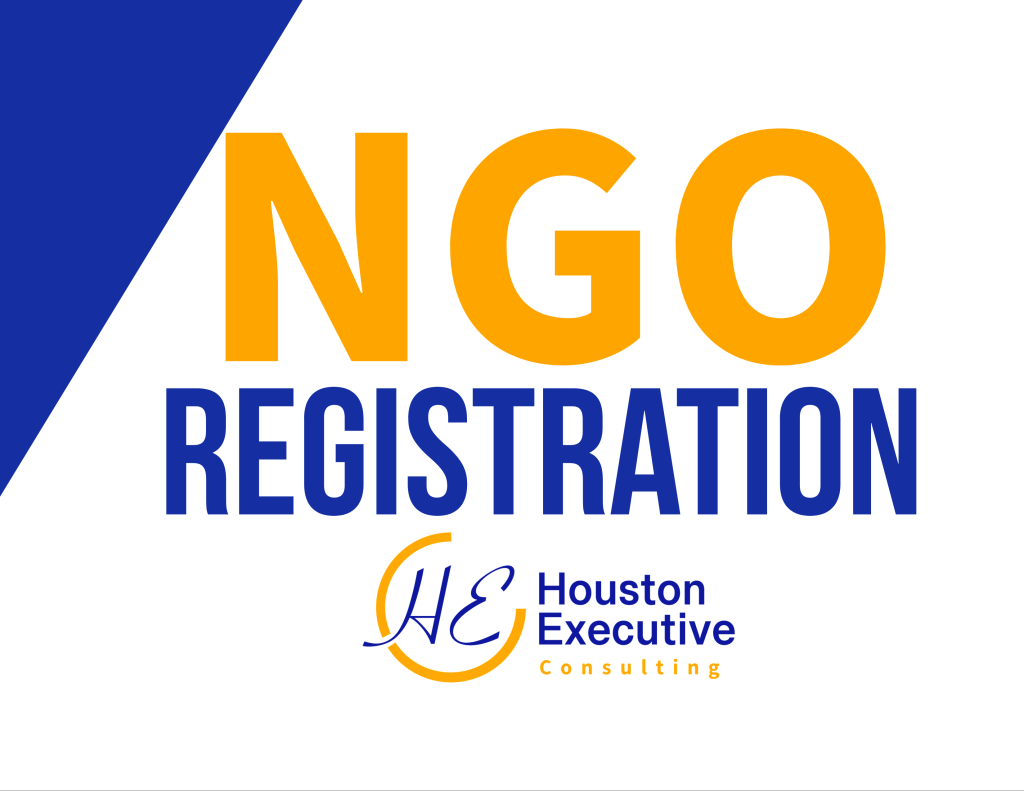Top 20 Lucrative Business Ideas in South Africa: Your Gateway to Entrepreneurial Success
Welcome to the land of opportunity—South Africa! Are you an aspiring entrepreneur looking to tap into this dynamic nation’s vibrant business landscape? Look no further! This comprehensive guide will explore 20 lucrative business ideas tailored for South Africa. From traditional ventures to innovative startups, there’s something for everyone eager to make their mark in the South African business ecosystem.
The following is a comprehensive list of 20 lucrative business ideas for entrepreneurs to start in South Africa.
- Farming and Agriculture

South Africa boasts fertile lands and diverse climates, making it ideal for agricultural pursuits. Consider venturing into crop farming, poultry, dairy, or aquaculture. With growing demand for organic produce and sustainable farming practices, the farm sector has ample room for growth and profitability. You can start with agricultural production inputs for vegetables, crops, poultry, and small and extensive stock.
If you focus on production for export, you can concentrate on producing Citrus, wine, table grapes, corn, apples, pears, and wool, which account for the most significant exports by value. The country also exports wool, nuts, sugar, mohair, and pears, just a few products.
The following opportunities are in supply for foreign investors interested in investing in the South African agriculture sector.
- Tractors account for a significant part of agriculture machinery in units sold, and their number has steadily increased over the years.
- Combine Harvesters
- Drone Technology
- Balers
- Planters
- Precision Agriculture Equipment and Technologies
- Sprayers
- Irrigation
- Storage
- Soil Testing Equipment
- Spare Parts and Service Facilities
You can always seek more information about the manufacturing, distribution, importation, sale, use, and advertisement of fertilizers, animal feeds, pesticides, and stock remedies, as well as the operation of sterilizing plants and pest control operators in terms of the Fertilizers, Farm Feeds, Agricultural Remedies and Stock Remedies from the Department of Agriculture, Land Reform, and Rural Development
- Tourism and Hospitality

South Africa, with its stunning landscapes, diverse wildlife, and rich cultural heritage, is a magnet for tourists from around the globe. The tourism and hospitality industry addresses the need for high-quality accommodations, adventure activities, and unique experiences for both international visitors and domestic travelers. The industry caters to a vast customer base, including eco-tourists, adventure seekers, cultural enthusiasts, and luxury travelers, ensuring a constant demand for varied services and experiences.
The Unique Selling Proposition (USP) that separates South African tourism is its unparalleled diversity. From the serene beauty of the Cape Winelands to thrilling safaris in Kruger National Park, South Africa offers something unique that competitors in other regions cannot match. Boutique hotels and eco-lodges emphasizing sustainability and local culture provide an authentic experience, making them attractive to environmentally conscious travelers and those seeking genuine cultural immersion.
In terms of Scaleability, the tourism and hospitality sector in South Africa has significant growth potential. Businesses can continually attract new customers by expanding into underdeveloped areas with untapped tourist potential or adding new services such as wellness retreats and adventure tours. Additionally, leveraging digital marketing and partnerships with international travel agencies can extend reach globally, driving further growth.
This is a profitable business idea. Given the high demand and the potential for premium pricing, especially for unique and luxurious experiences, the tourism and hospitality industry in South Africa can be highly profitable. Well-managed establishments that offer exceptional service and memorable experiences often see high occupancy rates and repeat visitors. Moreover, eco-tourism and sustainable practices can attract a growing segment of eco-conscious travelers, ensuring long-term profitability.
As an investor, you can obtain more information from the senior officers in the National Department of Tourism (NDT) on this website: https://www.tourism.gov.za/AboutNDT/Ministry/Pages/About-Ministry.aspx
- E-commerce and Online Retail

Market Need results from the shift towards digital shopping, which has created a significant market need in South Africa. Consumers increasingly prefer convenience and variety in online retail. The market includes a diverse customer base, ranging from urban millennials to rural consumers seeking access to broader product ranges. E-commerce addresses the demand for easy access to goods, competitive pricing, and home delivery services.
What differentiates a successful e-commerce platform in South Africa is the ability to offer localized service, including customer support in local languages, fast delivery times, and payment solutions that cater to regional preferences, such as cash on delivery or mobile money. Niche markets like handmade crafts, local produce, and unique fashion items also create a distinct identity that sets these platforms apart from international competitors.
E-commerce businesses are inherently scalable. They benefit from digital infrastructure, allowing accessible product ranges and geographic reach expansion. By leveraging data analytics, companies can optimize inventory management and personalized marketing strategies, driving growth. Partnerships with logistics providers and local artisans can further enhance scalability by expanding the supply chain and product offerings.
E-commerce platforms can achieve high profitability through volume sales and reduced overhead costs compared to traditional brick-and-mortar stores. Effective digital marketing and SEO can attract steady customers at a lower acquisition cost. Additionally, exclusive online sales, membership programs, and dynamic pricing strategies can boost profit margins.
- Education and E-Learning

South Africa has a growing demand for quality education and lifelong learning opportunities. This demand spans various demographics, from school-aged children needing supplementary education to adults seeking skill development and professional advancement. E-learning addresses the need for accessible, flexible, affordable education solutions, especially in underserved areas.
E-learning platforms that offer diverse courses, from academic subjects to vocational training, and incorporate interactive and engaging content stand out in the market. Platforms that provide personalized learning paths, language support, and locally relevant content can better meet the specific needs of South African learners. Partnerships with accredited institutions and industry leaders add credibility and appeal.
The e-learning sector is highly scalable, as digital platforms can accommodate increasing users with relatively low incremental costs. By continuously adding new courses and features, e-learning businesses can attract a wider audience. Collaborations with schools, businesses, and government programs can enhance scalability, facilitating broader reach and impact.
E-learning platforms have the potential for high profitability through subscription models, certification fees, and corporate training packages. The recurring revenue from users can offset the initial development costs. Additionally, leveraging data to offer personalized learning experiences can increase user engagement and retention, driving long-term profitability.
- Healthcare and Wellness

The healthcare and wellness industry in South Africa addresses a critical need for accessible, affordable, and quality healthcare services. The rising prevalence of chronic diseases and mental health issues and the emphasis on preventive care create a broad customer base. From urban centers to rural areas, there is a significant demand for medical services, wellness programs, and holistic health practices.
The Unique Selling Proposition (USP) lies in Innovative solutions such as telemedicine platforms, which offer remote consultations, and wellness centers that integrate traditional and modern practices. These solutions set businesses apart. Offering personalized care, leveraging local health practitioners, and ensuring affordability can attract a loyal customer base. Wellness retreats focusing on holistic health and lifestyle improvement also provide unique value.
The healthcare and wellness sector is about meeting current needs and shaping the future of healthcare. It is scalable through expanding services, geographical reach, and technology integration. Telemedicine can rapidly scale by incorporating more specialists and expanding its network. Wellness centers can open new locations or franchise their model to reach more clients. Additionally, partnerships with insurance companies and health organizations can drive growth.
The healthcare and wellness services sector is about making a difference and profit. It can achieve profitability through service fees, memberships, and wellness programs. Telemedicine reduces overhead costs compared to traditional clinics, enhancing profit margins. Wellness retreats and specialized programs can command premium pricing, increasing profitability. Continuous demand for health services ensures steady revenue streams.
- Technology and Innovation

South Africa’s young, tech-savvy population and burgeoning tech scene create a significant market need for innovative technology solutions. Software development, mobile apps, and fintech solutions that can enhance everyday life, improve business efficiency, and provide financial inclusion are in demand. The market includes startups, established businesses, and a tech-embracing consumer base.
Technology and innovation businesses that offer cutting-edge solutions tailored to local needs have a competitive edge. These businesses stand apart by developing user-friendly mobile apps, secure fintech platforms, and custom software that addresses specific industry challenges. Emphasizing local talent and innovation aligns with national development goals and resonates with customers.
The technology sector’s scalability is inherently driven by the low marginal cost of digital products and the potential for rapid adoption. Leveraging cloud computing, data analytics, and agile development practices can accelerate growth. Expanding into new markets and continuous innovation ensure sustained scalability. Strategic partnerships with other tech firms and educational institutions can further enhance growth potential.
High Profitability in the Technology businesses can be achieved through subscription models, software licensing, and transaction fees. The ability to scale quickly and the relatively low distribution cost contribute to solid profit margins. Additionally, the high demand for tech solutions ensures steady revenue streams. Continuous innovation and value-added services can drive long-term profitability.
- Real Estate and Property Development

As urbanization accelerates, particularly in major cities like Johannesburg, Cape Town, and Durban, the demand for residential and commercial properties in South Africa continues to rise. A growing population and increasing urban migration drive the need for quality housing, modern office spaces, and retail complexes. Additionally, there is a substantial demand for affordable housing solutions to address the housing deficit among low—to middle-income households.
A real estate and property development venture can set itself apart by emphasizing its unique selling points. This could include focusing on sustainable and innovative building practices, such as using green technologies, energy-efficient designs, and smart home features. Offering flexible payment plans and partnering with financial institutions to facilitate more accessible access to home loans can also be highlighted as unique features that attract a broader customer base.
The scalability of real estate ventures is significant due to the vast geographical spread and diverse property needs across South Africa. Developers can gradually expand to other regions, starting with a few projects in high-demand areas. By leveraging technology and strategic partnerships, property development companies can scale operations efficiently to manage multiple projects simultaneously locally and potentially in other African markets.
Real estate development can be highly profitable due to the substantial return on investment (ROI) from property sales and rentals. Developing properties in prime locations can yield high rental incomes and capital appreciation over time.
Additionally, diversifying into related areas such as property management and real estate investment trusts (REITs) can provide steady income streams and mitigate risks associated with market fluctuations.
- Food and Beverage Manufacturing

South Africa’s diverse culinary landscape, influenced by various cultural heritages, creates a robust demand for unique food and beverage products. Consumers increasingly seek specialty foods, artisanal products, and healthier, organic options. There is also a growing market for convenience foods and beverages as urban lifestyles become busier, emphasizing quick yet nutritious options.
A food and beverage manufacturing business can stand out by emphasizing locally sourced ingredients, authentic recipes, and sustainable production practices. Positioning the brand around the narrative of supporting local farmers and reducing the carbon footprint can appeal to environmentally and socially conscious consumers. Introducing innovative flavors and premium quality products can cater to the gourmet market segment.
The food and beverage sector offers vast scalability potential. Businesses can expand their reach through retail partnerships and e-commerce platforms, starting with a localized distribution network. Scaling production facilities to meet increasing demand and exploring export opportunities to neighboring countries can further enhance growth prospects. Franchise models for specialty food outlets also provide scalable expansion avenues.
The profitability of food and beverage manufacturing is a critical factor that makes this sector attractive for expansion. The high demand and the ability to command premium prices for unique and high-quality products contribute to substantial returns. Efficient production processes and economies of scale can significantly lower costs, further enhancing profitability. Diverse revenue streams from wholesale, direct retail, and export markets contribute to a robust financial performance. Additionally, the sector’s resilience to economic downturns due to consistent consumer demand for food products supports sustained profitability.
- Financial Services

South Africa’s sophisticated financial services sector is the continent’s economic hub, with a growing need for innovative financial solutions. The rise of the middle class and increasing digital connectivity drive demand for accessible banking, investment, insurance, and financial advisory services. There is also a significant market for microfinance and fintech solutions to cater to underserved populations and small businesses.
Trust and security are paramount in the financial services sector. A financial service venture can build trust by emphasizing its robust security measures and transparent operations. Offering seamless, digital-first banking experiences, personalized financial planning, and innovative investment products tailored to individual needs can also help attract a broad client base.
The financial services industry offers extensive scalability. Starting with a niche market segment, such as fintech for small businesses or personalized wealth management for high-net-worth individuals, companies can expand their services nationwide and eventually across the continent. Leveraging technology to automate and streamline processes enables efficient scaling while maintaining high service standards.
Financial services are inherently profitable due to their recurring revenue models, such as interest income, transaction fees, and management fees. High customer retention rates and the ability to cross-sell additional services enhance profitability. The sector’s potential for rapid growth, particularly in digital banking and fintech innovations, offers lucrative opportunities for sustained financial performance.
- Logistics and Transportation

Efficient logistics and transportation are critical to South Africa’s economy due to its vast geography and strategic position in global trade routes. The growing e-commerce sector, increasing industrial output, and bustling trade necessitate robust logistics solutions to facilitate the seamless movement of goods domestically and internationally. There is a pressing need for reliable courier services, freight management, and innovative logistics technologies.
A logistics and transportation business can offer reliable, fast, cost-effective solutions. Leveraging technology for real-time tracking, efficient route planning, and ensuring high safety and compliance standards can build a competitive edge. Specializing in niche markets, such as cold chain logistics for pharmaceuticals or perishables, can also attract specific clientele.
The logistics sector is inherently scalable. With a regional focus, companies can expand their services to cover national and cross-border logistics. Developing partnerships with other logistics firms and investing in a versatile fleet of vehicles and advanced technology can support large-scale operations. Expanding into value-added services, like warehousing and inventory management, further enhances scalability.
Logistics and transportation businesses can achieve significant profitability through volume-driven revenue models. Efficient operations, leveraging technology to optimize routes, reduce fuel consumption, and maintain high customer service standards contribute to profitability. The sector’s critical role in trade and commerce ensures steady demand, while diverse service offerings can buffer against market volatility.
- Manufacturing and Industrial Production

Despite globalization challenges, manufacturing remains vital to South Africa’s economy. Significant demand exists for value-added manufacturing, particularly in agro-processing and green technology. Local production reduces dependence on imports and supports economic growth. The push for industrialization and job creation also underscores the need for robust manufacturing sectors.
A manufacturing venture can distinguish itself by focusing on innovation, quality, and sustainability. Advanced manufacturing techniques like automation and robotics can enhance productivity and quality. Emphasizing eco-friendly practices and producing high-quality, locally sourced products can attract local and international customers.
Manufacturing businesses have strong scalability potential through the expansion of production capacities, diversification of product lines, and exploration of export markets. Investing in modern technology and skilled labor can facilitate large-scale production. Strategic alliances with suppliers and distributors can enhance market reach and operational efficiency, supporting scalable growth.
Manufacturing ventures can achieve high profitability through efficient production processes, economies of scale, and high demand for locally produced goods. Manufacturers can maintain competitive pricing while ensuring healthy profit margins by focusing on high-margin products and optimizing supply chain management. Export opportunities further enhance profitability by tapping global markets and increasing revenue streams.
- Consulting and Professional Services

With a dynamic business environment and complex regulatory landscape, South Africa significantly demands consulting and professional services. Businesses seek expert advice to navigate legal, financial, and management challenges. The growing emphasis on corporate governance, compliance, and strategic planning underscores the need for specialized consultancy services.
A consulting firm can stand out by offering deep industry expertise, personalized service, and innovative solutions. Building a reputation for delivering measurable results and maintaining high standards of professionalism can attract a loyal client base. The firm can further differentiate by offering specialized services tailored to specific industries, such as healthcare, finance, or technology.
Due to their knowledge-based nature, consulting and professional services are highly scalable. Expanding the team with skilled professionals and leveraging digital tools to enhance service delivery can support growth. Establishing a solid online presence and utilizing remote consulting options can broaden the client base. Expanding service offerings and entering new markets locally and internationally can drive scalable expansion.
Consulting services are highly profitable due to the premium fees charged for expert advice and solutions. The low overhead costs associated with knowledge-based services contribute to healthy profit margins. Long-term client relationships and recurring engagements provide steady revenue streams. Diversifying into training, workshops, and digital consulting products can further enhance profitability and market reach.
- Fashion and Apparel

South Africa’s vibrant fashion scene, influenced by diverse cultural heritage, is gaining international recognition. There is a growing demand for unique, locally inspired fashion and apparel. The rise of conscious consumerism drives demand for sustainable and ethically produced clothing. The affordable, stylish apparel market is also expanding as urban populations grow.
Fashion and apparel ventures can distinguish themselves through innovative designs that reflect local culture and trends. Emphasizing sustainability using eco-friendly materials and ethical production processes can attract conscious consumers. Building a brand narrative around supporting local artisans and creating exclusive, high-quality collections can set the business apart in the competitive fashion market.
The fashion industry offers significant scalability potential. Businesses can expand nationally and internationally with a solid online presence and localized retail outlets. Leveraging e-commerce platforms and social media marketing can enhance market reach. Collaborating with influencers and participating in fashion events can drive brand visibility and growth. Expanding product lines and entering new fashion segments, such as accessories or footwear, can support scalable growth.
Fashion ventures’ profitability is driven by high demand and the ability to command premium prices for unique, high-quality products. Efficient supply chain management and cost-effective production processes can enhance profit margins. The cyclical fashion industry ensures continuous consumer demand, supporting sustained profitability. Diversifying revenue streams through seasonal collections and exclusive collaborations can further boost financial performance.
- Franchising and Retail

Franchising presents a proven business model for entrepreneurs seeking to enter the market with a recognizable brand and support network. South Africa has a growing consumer demand for convenient retail options, fast food, and specialty services. The rising urban population and increasing disposable incomes drive the need for accessible and reliable retail outlets.
A franchising venture can differentiate itself by offering franchisees established brand recognition, comprehensive training, and ongoing support. A consistent and high-quality customer experience across all locations can build a loyal customer base. Innovating within the franchise model, such as integrating technology for better customer engagement, can further enhance the value proposition.
Franchising inherently supports scalability. Businesses can expand rapidly by replicating a successful business model across multiple locations. The franchise model allows for growth with lower capital investment as franchisees contribute to the expansion costs. Leveraging a solid brand and standardized operations ensures consistent quality and customer satisfaction, supporting scalable growth.
Franchising can be highly profitable due to the established business model and brand equity. Franchisees typically pay initial franchise fees and ongoing royalties, providing a steady revenue stream for the franchisor. The ability to scale quickly and efficiently contributes to higher profitability. The diversified revenue from multiple franchise locations also reduces financial risk and supports sustained profitability.
- Export and International Trade

South Africa’s strategic location and access to global markets present significant opportunities for export and international trade. The country’s diverse range of agricultural products, manufactured goods, and technological services are in demand worldwide. Expanding into global markets helps diversify revenue streams and reduce dependence on the domestic economy.
Export businesses can differentiate themselves by offering high-quality, competitively priced products that meet international standards. Establishing a solid brand reputation for reliability and excellence can attract global buyers. Leveraging South Africa’s unique products, such as specialty wines, exotic fruits, or advanced technologies, can create a competitive edge in the international market.
Export businesses have immense scalability potential. Starting with targeted markets, companies can gradually expand to other regions. Building solid logistics and distribution networks, leveraging e-commerce platforms, and forming strategic alliances with international partners can support scalable growth. Participating in international trade fairs and using digital marketing to reach global customers further enhances market reach.
Export ventures can achieve high profitability by tapping into larger international markets with higher demand and purchasing power. Diversifying product lines and markets reduces risk and ensures steady revenue streams. Efficient supply chain management and competitive pricing strategies can enhance profit margins. Export incentives and support from trade organizations further boost profitability and market expansion.
- Website Design, Digital Marketing & Social Media Management

South African businesses, exceptionally tiny and medium enterprises (SMEs), often lack the expertise or resources to establish a solid online presence. This creates a demand for agencies that design user-friendly websites, implement effective digital marketing campaigns, and manage social media accounts to reach target audiences and generate leads.
Focus on a specific niche within the market, like eco-conscious businesses or local startups. Offer integrated solutions that combine website design, SEO optimization, social media management, and targeted online advertising, creating a one-stop shop for clients.
Your business can grow by strategically taking on more clients and building a team of specialists. To streamline onboarding and project management, develop standardized service packages. Explore offering retainer packages for recurring revenue. This approach puts you in control of your business’s growth trajectory.
Profitability depends on the client base and service packages. Focus on delivering measurable results (increased website traffic, improved conversion rates) to justify fees and build client loyalty. Consider value-based pricing that reflects your services’ impact on the client’s business.
- Photography Business

There’s a constant demand for high-quality photography across various sectors in South Africa, including weddings, events, family portraits, product photography, and real estate marketing.
Develop a unique photography style and specialize in a particular niche. Offer innovative services like drone photography or 360-degree virtual tours. Focus on exceptional customer service and create a memorable experience for clients. This could involve pre-consultation sessions to understand their vision, offering wardrobe advice for portrait shoots, or making a dedicated online gallery for wedding photos.
The business can expand by adding additional photographers as subcontractors and offering various photography packages. Invest in high-quality equipment and editing software to cater to diverse client needs. Create online courses or workshops to share your expertise and generate passive income.
Profitability can be achieved through competitive pricing, package deals, and upselling additional services like photo editing or album creation. But remember, building a solid online portfolio and positive client testimonials is not just about attracting new customers; it’s about showing your existing clients how much you value their satisfaction and loyalty.
- Freelancing

The rise of the gig economy has opened doors for skilled individuals to offer their services as freelancers. This offers flexibility and the potential for high income but requires self-marketing solid skills, time management, and the ability to deliver consistent quality work.
Businesses across various industries increasingly rely on freelance talent to fill project-based needs or access specialized skills without the overhead costs of full-time employees. This creates opportunities for freelancers in web development, content writing, graphic design, social media marketing, and many other fields.
While generalist skills are valuable, specializing in a high-demand field can help you stand out in the competitive online marketplace. Develop niche expertise in e-commerce website development, content writing for the South African market, or social media management for tourism businesses.
Freelancing allows you to scale your business by taking on more clients as your workload permits. However, effective time management is crucial to avoid burnout. Consider building a team of virtual assistants or subcontractors to handle administrative tasks or specific project components, allowing you to focus on high-value client work.
Freelancing income can vary depending on your experience, skillset, and chosen niche. Research competitive rates in your field and develop a pricing strategy that reflects your value proposition. Upselling additional services or offering retainer agreements can also increase profitability. Building a solid online presence through portfolio websites and social media marketing is essential for attracting new clients.
- Interior Design Business in South Africa

South Africa’s flourishing property market constantly demands interior design expertise. Homeowners renovating or building new spaces, as well as businesses seeking to revamp their offices or retail stores, all require the services of skilled designers.
Identify a niche market within the broader interior design industry. Perhaps you specialize in sustainable design using locally sourced materials or focus on creating functional and stylish spaces for tiny homes. This USP allows you to target a specific clientele and develop a strong reputation within that market.
An interior design business can grow organically through client referrals and a solid online presence. Initially, you might focus on smaller projects like building a portfolio and client base. As the business grows, you can expand services to include project management, procurement of furniture and finishes, and even take on larger commercial projects.
Interior design projects can be lucrative, with fees typically based on a percentage of the total project cost. Profitability hinges on managing project timelines and budgets effectively while minimizing overhead costs.
- Hair Salon Business in South Africa

South Africa’s beauty industry is thriving, with a growing consumer base seeking professional hair care services, such as haircuts, styling, coloring, and treatments.
Standing out in a competitive market requires a unique selling proposition. This could involve specializing in a particular hair type or texture, offering trendy or niche hair treatments, or catering to a specific clientele, such as men or people of a certain cultural background. Consider [particular steps or strategies] to develop your unique selling proposition.
Hair salons can achieve scalability through several methods. Adding stylists allows you to serve more clients and extend operating hours. You can also expand services to include makeup artistry, nail care, or even a retail section selling hair products. The most ambitious option might be opening a franchise model, allowing others to operate salons under your brand name.
Hair salons generate revenue through service fees and product sales. Profitability relies on managing rent, staff salaries, and product inventory costs while maximizing client satisfaction and repeat business.
Final Comments
South Africa offers many opportunities for aspiring entrepreneurs willing to seize them. Whether you’re passionate about agriculture, technology, hospitality, or social impact, a lucrative business idea is waiting to be explored.
By leveraging the country’s resources, talent pool, and entrepreneurial spirit, you can embark on a rewarding journey toward success and prosperity in the dynamic business landscape of South Africa. Starting a business in South Africa can be a fulfilling and profitable experience. Choosing one of these 20 business ideas can help you start a successful business that caters to your client’s needs and meets market demands. Please thoroughly research, create a solid business plan, and focus on your goals. Best of luck!












